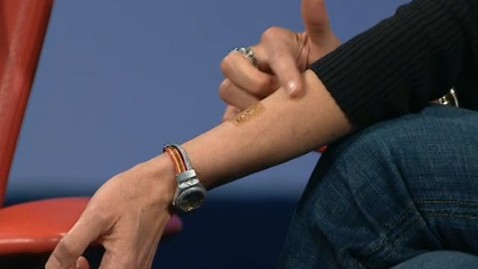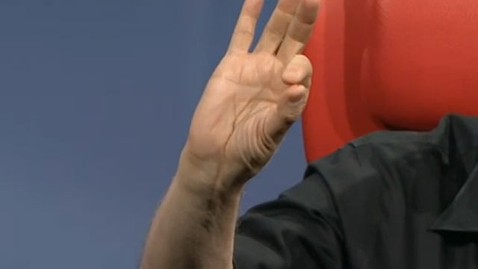Sick of Typing Passwords? Get an Electronic Tattoo or Ingest a Pill

The average person inputs a password 39 times a day, with power users typing that string of letters and numbers up to 100 times a day, Motorola's head of Advanced Technology & Projects Regina Dugan revealed at the All Things D conference this week.
But even then that password, as a series of recent hacks have shown, isn't always secure.
Sure, there are ways of authenticating beyond passwords, including two-factor authentication which requires a user to input a password and a code that is sent to their phone, but Motorola's dreaming up a way of keeping our passwords even closer to ourselves - literally.
At the conference Dugan showed off two ways of turning your body into a password. With an electronic tattoo, she said, people would be able to just wear their password on their skin.
"We are thinking of a variety of options for how you could do better at authentication. You can start with near term things like tokens or fobs, but you can also think of a means of authentication that you could wear on your skin for a week at a time," she said. "We are talking about an electronic tattoo."
Motorola is working with a company called MC10, which makes a tattoo with embedded sensors and an antenna. "What we plan to do is work with them to advance a tattoo for authentication. Ten- to 20-year-olds might not want to wear a watch on their wrists, but you can bet they will wear a tattoo - if only to piss off their parents," she said.
MC10 has shown off this technology before but in a medical sense. The tattoos could replace pacemakers, MC10's CEO said at TedMed back in 2012.
RELATED: Passthoughts? Brainwave-Based Passwords a Reality
But Dugan is thinking beyond the outside of our bodies with authentication: "I take a vitamin every morning. What if I could take vitamin authentication?"
 Dugan showed off a small pill. Inside that pill wasn't medication but a tiny computer chip. "It also has what amounts to an inside-out potato battery. The acids in your stomach serve as an electrolyte and power it up," she explained.
Dugan showed off a small pill. Inside that pill wasn't medication but a tiny computer chip. "It also has what amounts to an inside-out potato battery. The acids in your stomach serve as an electrolyte and power it up," she explained.
That creates a signal in your body and your body becomes the password. You can touch your phone, car or door and be "authenticated in." Sounds crazy, yes, but this is not just "science fiction" Dugan said. Made by Proteus Digital Health, the pill was approved by the FDA in August 2012. Its version of the digital pill sends information to your doctor from inside your body. It is currently being tested with placebo pills.
So when is all of this coming? Not as soon as Motorola's made-in-America Moto X phone. Motorola's CEO Dennis Woodside said, "This isn't stuff that is going to ship anytime soon, but having the boldness to think differently about problems everyone has everyday is really important for Motorola now."